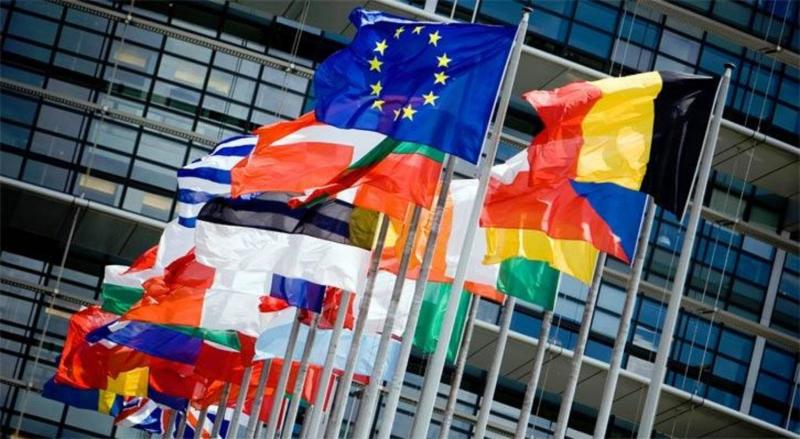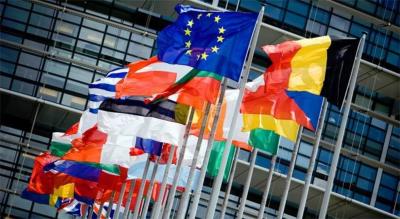The results of the European elections held last week have sparked two distinct patterns of reactions among political analysts on the old continent. One reaction can be described as the ostrich option, where one buries their head in the sands and prays for the storm to pass peacefully. The other reaction can be termed terrifying, referring to the four fearsome horsemen riding across the horizon. Members of the ostrich party argue that despite the successes of far-right parties, the next European Parliament will remain under the control of the center-right and social democratic groups clinging to the past, intent on maintaining the status quo. In contrast, analysts associated with the terrifying option warn of a wave of chaos looming on the horizon, with some even claiming that the specter of fascism is returning to Europe.
The recent elections are the latest in a series of events that have unveiled some structural problems the European Union faces, which have not been raised as key issues in broad discussions about the future. One of these issues is the EU’s growing tendency toward federalism—a hidden desire that has never been openly acknowledged, despite having charted the general path of the Union since the days of Jacques Delors. Indeed, Europe, referring specifically to the Western and Northern parts of the continent, has benefited from the diversity of political and cultural structures by welcoming different ways of thinking, believing, and accomplishing tasks. In contrast, the Eastern parts of the continent, dominated by the Russian Empire, have remained stagnant over time, promoting a singular pattern in the name of unity.
Many critics of the EU describe themselves as advocates of sovereignty and oppose the idea of a great European state, seeing it as a new version of an empire. However, they overlook a fundamental characteristic of the classic sovereign European state, which is its openness to immigrants and various ideas, cultures, and religions. Modern sovereignty advocates reject the idea of a closed empire, but they hope for the rule of the nation-state as a small, self-absorbed empire. Within at least half of the EU's 27 member states, sovereignty advocates have based their discourse on the fear of the "great replacement," claiming that mass immigration is fundamentally changing the genetic ethnic composition of European populations. According to some studies, many Europeans from the second and third generations of immigrant backgrounds share this fear. Notably, in France, the rising star of the sovereignty movement, the National Rally, Jordan Bardella, is a second-generation Italian immigrant. In the Scandinavian countries, the second generation of Turkish and Afghan immigrants are among the most active opponents of immigration.
Ironically, this rise in anti-immigrant sentiment comes at a time when net migration to the EU has reached its lowest level in over two decades. While anti-Islam and/or Muslim groups form part of the anti-immigration narrative, we are also witnessing the emergence of what might be called "Islamophilia" within sections of far-left groups. During a tour of several polling stations in Paris last Sunday, we observed groups of extreme left-wing militants raising Palestinian flags, wearing keffiyehs, and calling for support for pro-Putin candidates from "France Insoumise," whose campaign posters demand an "immediate ceasefire in Gaza."
In the first mass protest against the victory of the National Rally party in the elections, thousands of "progressive" activists gathered in Place de la République "to defend French values." However, there was not a single French flag in sight. Instead, a forest of Palestinian flags appeared, carrying slogans against the EU leadership, U.S. President Joe Biden, and of course Benjamin Netanyahu. Thus, the European Union is under attack from both the far right and the far left, while the center-left is receding and the center-right flirts with far-right groups.
In fact, European democracies face the danger that Hobbes warned of two centuries ago: the execution of the tyrant, or the state, through thousands of wounds inflicted upon it. The recent EU elections have revealed at least one thing: the Union increasingly lacks popularity. Under rising pressure from marginal right and left parties, the Union has continued some policies that originally caused it to lose popularity.
Due to the seemingly endless war in Ukraine, rising inflation, the failure to redefine globalization, the temptations of economic nationalism, doubts surrounding the alliance with the United States, and the inability to determine whether China is a promising partner or a source of threat, not to mention a series of corruption scandals—all these have pushed the EU toward a difficult situation. For their part, pro-exit French voters secured slightly over one percent of the votes last Sunday. Nevertheless, the only enthusiastic "European" list, led by socialist Raphael Glucksmann, did not reach an impressive 14 percent—an achievement worth mentioning. Overall, the outlook does not look good for the old Union.




